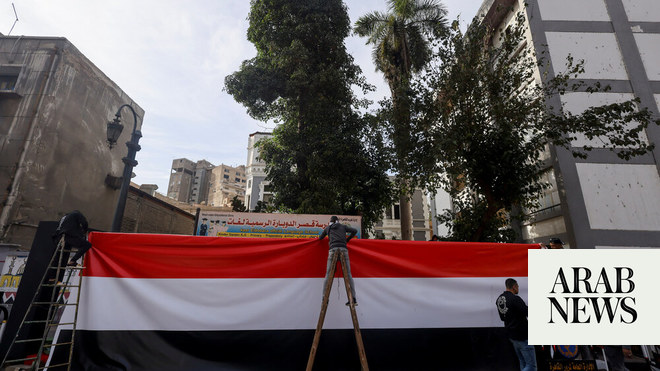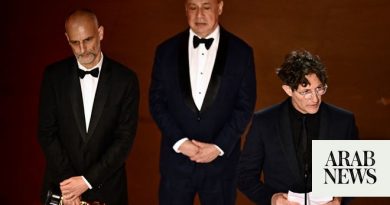El-Sisi poised for third term as Egyptians head to the polls

CAIRO: Egyptian President Abdel Fattah El-Sisi is looking to secure six more years in power in the country’s presidential election, which takes place Dec. 10-12.
The president is competing against three other candidates: Abdel-Sanad Yamama of the Wafd Party, the oldest Egyptian party; Hazem Omar, head of the Republican People’s Party; and Farid Zahran of the Social Democratic Party.
Parliamentary representative Mohammed Maher El-Sebaei said: “This is a significant moment, especially for the youth, who represent 65 percent of the population.”
El-Sebaei emphasized the critical role of young Egyptians in shaping the future through voting, calling the election a “democratic celebration, marking the fifth multi-party election in Egypt’s history.”
Shawkat Al-Assar, a political analyst, emphasized that the election could provide an opportunity for broader participation and expression of opinions and said he views it as a precursor to a new era of political diversity and expansion of the public sphere.
Vote counting is scheduled to begin as soon as the polls close on Tuesday. Around 9,400 polling stations have been set up across the country and 15,000 judicial employees will be working at them over the three days of the election, supervising the procedures and transporting the ballots to where they will be counted.
The Egyptian National Elections Authority said around 11,631 sub-polling committees had been set up at the stations, which include schools, youth centers, and health units.
The authority has also invited all accredited diplomatic missions in Egypt to observe the electoral process. So far, 24 embassies have expressed their interest in observing, and 67 diplomats have registered for monitoring.
Additionally, 14 international organizations and 62 local civil-society organizations have been approved to monitor the voting, with 22,340 people receiving permits.
Officials said 528 professionals from 115 international media outlets and 4,218 from 70 local outlets have been accredited to cover proceedings.
Dedicated phone lines and video-call services with sign language interpreters will also be available and arrangements have been made to ensure that the elderly, those with special needs, and those with impaired sight or hearing will be able to vote.
Dr. Iman Karim, general supervisor of the National Council for Persons with Disabilities, said that the council had been proactive in ensuring the participation of disabled people.
The polling stations will be open from 9 a.m. until 9 p.m. on all three days of the election.
Source – Arab News



